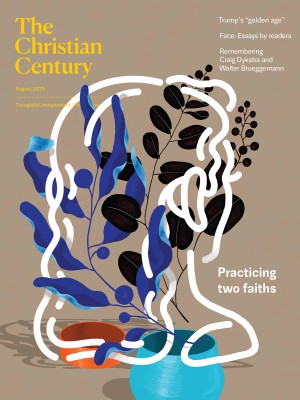August 31, Ordinary 22C (Luke 14:1, 7-14)
Jesus is clear: Hosts should invite only those who cannot reciprocate.
Jesus the dinner guest offers two pieces of advice that strike modern readers as countercultural. But does Jesus teach deep theological values, or is he selling social wisdom? I suggest that we approach this passage from Luke with deep humility, not as a confirmation of our supposedly progressive priors but as a call to levels of discipleship we have not yet taken seriously. We should allow Jesus’ words to challenge us in uncomfortable ways.
According to Jesus’ first teaching, dinner guests should seek out the least prominent seats. That way, they can avoid the disgrace that would accompany a seating demotion, while enhancing their prospects of honor should their hosts elevate them. Far better to move up than be sent down. Second, hosts should invite not their close friends and desired social peers but people who cannot return the favor: “the poor, the crippled, the lame, and the blind.” The first piece of advice applies to potential social benefits in this world, but the second looks toward the world to come. Those at the bottom of our social hierarchies have nothing tangible to give, but God will reward the radical host “at the resurrection of the righteous.”
Read our latest issue or browse back issues.
Luke sets the scene: Jesus is guest to a prominent Pharisee, and the meal occurs on the sabbath. The gospels treat the Pharisees as stock characters, people interested in their own status rather than faithful Jews dedicated to lives of integrity. It’s similar to the ways contemporary politicians describe their opponents: cue the menacing music and shadowy settings. We should bear in mind that we know little about actual Pharisees in Jesus’ time. Luke does offer a more nuanced portrait of the Pharisees than do the other gospels. But even Luke can’t resist painting the Pharisees as “lovers of money” (16:14). Christian readers must be ever mindful of our own tendencies to use the Pharisees as examples of Judaism’s supposed deficits—and of the deep harm this has caused.
This is Jesus’ third meal as a Pharisee’s guest, something that happens only in Luke. At the previous two meals Luke offers no hint of ill will at the beginning of the meal. On each occasion, however, conflict begins when Jesus notices dissatisfaction from his host (7:39–40, 11:38–39). Now, at this third meal, Luke adds a note of suspicion. Right from the beginning, an odor of animosity joins the pleasant aroma of an inviting meal: “they were watching him closely.” Pharisees have already tangled with Jesus concerning his sabbath observance on multiple occasions. Sure enough, Jesus spots a person who suffers from dropsy, or edema, a condition popularly associated with gluttonous or luxurious living. Jesus advances the controversy on his own initiative, challenging the other guests before healing the man (14:2–6). Here the Pharisees and lawyers present do not even voice their objections.
This healing story is not included in our lectionary selection, but it is part of Luke’s grander scene. Luke, who enjoys creating grand set pieces (see chapter 15), locates Jesus’ teaching about banquets between this healing and the parable of the great dinner (14:15–24). It is all one scene that may even extend through 17:10; at a minimum, the whole of Luke 14:1–17:11 revolves around meal settings.
Luke presents Jesus’ first teaching as a parable. Its wedding banquet setting may lend it a parabolic air: Many of Jesus’ parables feature circumstances or behavior several standard deviations from the norm. Perhaps most ancient weddings had clear pecking orders involving guests’ relationships to the wedding party. Perhaps Jesus is using a situation all but unimaginable to his hearers, the idea that a wedding guest would sit above their social station. His instructions would then serve a parabolic purpose as a point of comparison to the behavior of the people around. Effectively, Jesus would be saying something like, “Look at you, all scrambling to display your status and claim the best seats. You look ridiculous.”
Jesus’ second teaching is more direct: hosts should invite only those who cannot reciprocate. Knowing that Jesus said this, many of us simply nod and act as if it never happened. What are meals for, after all, if not to enjoy the company of people we love and like? Yes, we also share meals to build other relationships and perhaps position ourselves for business and other opportunities. But rarely would we even contemplate inviting someone who might, for example, smell bad. Judging from our behavior, few of us take Jesus seriously at all. My own behavior does not stand out from the crowd.
Yet our choices in meal partners may provide one of our most radical opportunities to live the gospel. We may recall the days of Jim Crow, when people literally risked their lives by sharing tables across racial lines. Damn the consequences, some brave people did exactly that. Their discipleship so contradicted the way they’d been raised that some White participants reported that they struggled to swallow their food. Imagine the determination and grace extended by their Black fellows who stayed at the table despite all the drama. May we too turn tables into spaces of inclusion and good will.






